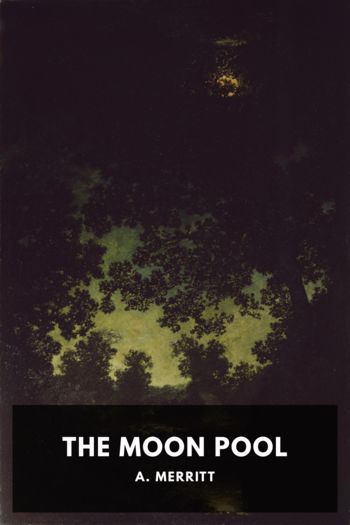Bombshell, Max Collins [important books to read .TXT] 📗

- Author: Max Collins
Book online «Bombshell, Max Collins [important books to read .TXT] 📗». Author Max Collins
Khrushchev is coming, they said.
All right, then.
Khrushchev is coming … Khrushchev will die.
At first, Jonas thought he might have to return to New York to assassinate Khrushchev; he had enough money saved to take a bus—hopping trains would not be necessary, this time. But soon the American press was thoughtful enough to provide the premier’s travel schedule, which included a stop in Los Angeles.
How wonderful freedom of the press was!
His parents had been Roman Catholic, but when Jonas went off to the university, he had abandoned the church; like so many students he found notions of existentialism interesting, and considered himself an agnostic.
Now, in America, and for the first time in many years, Jonas went to a Catholic Church and prayed—thanked God for this gift. He did not, however, take confession.
Jonas watched the hearse-like black limousines pull away from in front of the hangar at the airport in Los Angeles. He thrust his hands into the pockets of his flour-soiled chinos, fingering the press-pass card he’d lifted off a Newsweek reporter. His fellow reporters had been nice enough to mention among themselves that Khrushchev was going to a luncheon at Fox Studios later, and that a civic dinner would follow at the Ambassador Hotel that evening.
Getting into Fox Studios would be hard—they had a gate, and guards, and everyone knew everybody. But the hotel? That was a public place; so much was unguarded in a free country. The hotel would be easy, with so many guests and restaurant patrons…
Jonas caught a bus at the airport that took him downtown, boarding another one going to West Los Angeles, where he lived on the fifth story of a rundown brick apartment building in which only a few less languages were spoken than at the United Nations.
In his tiny kitchenette, he placed the stolen press badge that read, “John Davis, Newsweek” on the table next to a black Kodak camera with silver flash attachment. He opened the camera and inserted a small revolver in its hollowed-out interior. The pistol didn’t look very threatening—like a starter’s gun at a track meet—but pressed against Khrushchev’s temple, it would be up to the noble task.
Then, taking a piece of butcher paper, Jonas printed a note for the authorities to find. He didn’t want his adoptive American country to bear the brunt of his actions.
Satisfied, Jonas went into his bedroom where a new brown serge suit, white shirt, diamond-patterned beige tie, and tan hat awaited, spread out like a sartorial feast on the threadbare bedspread. The outfit had taken much of his savings, except for the change in his pocket. But that was all right; after tonight he would have no further need for money.
He’d studied the photos in the recent Life magazine of the pressmen covering the dictator’s trip … of what they wore … and newsreels at second-run movie houses and news programs on televisions in store windows … of how they acted, these American reporters. He practiced their brash stance and obnoxious smirk in the bathroom mirror, until he thought he’d gotten it right. He was no actor, but he had been in the arts; he was creative.
Jonas pulled out the loose change in his pocket. There was more than enough for him to call a taxi, and arrive at the Ambassador in style.
But that would be later.
He checked his watch.
There was plenty of time for a long, refreshing nap.
And, sunlight creeping in the shuttered windows, Jonas slept better than he had since that night with Eva, who entered his dreams and kissed him and called him a poet and a warrior.
So few poets, after all, can make history.
4 A Self-Made Man
Boiling with rage, flesh white as dead skin, Nikita Khrushchev sulked in the back seat of the limousine, seated between his wife Nina and translator Oleg Troyanovsky, as if they were indulgent parents on either side of their fat little boy, a spoiled brat denied a toy. The perpetually pleasant Nina remained placid, despite the rude treatment the Russian entourage had just endured at their arrival in Los Angeles; Oleg, who had a cynical streak, accepted this fate with typically cool detachment.
The sleek, black Lincoln sedan transporting the Khrushchevs and their translator—followed by four other limousines—traveled swiftly out of the airport, heading into the city and a luncheon that had been scheduled at some motion-picture facility. Nikita had prepared a gracious, amiable speech that he’d intended to grant the crowd that would greet him when he came off the Air Force plane… He would have told these citizens how happy he was to be in Los Angeles, and the positive things he hoped to accomplish in their sunny city. He was going to say—quite cleverly, Nikita thought, a peasant delighted by his own poetry—that the city’s smog was like the cold war: both must be abolished if the two countries were to continue breathing…
But then that vyesh brakovanaya Mayor Poulson had insulted Khrushchev—the premier of Russia!—by dismissing him with a paltry, one-sentence introduction. This was a slap in the face, missed by no one—not a personal affront, no—this was not a matter of Nikita’s ego being bruised; rather, a display of public disrespect to Russia itself.
With some satisfaction, Nikita had noted the embarrassment on the faces of the American dignitaries, and of that fellow Harrigan, the agent in charge of protecting the premier and his family. The State Department man’s eyes had tightened and so had his hands, clenching as if he wanted to punch the mayor right in the zhiloudak.
Now the sedan sped along streets in the bright California sunlight, which shimmered on the leaves of palm trees and other exotic plants, winking





Comments (0)